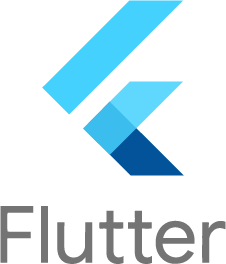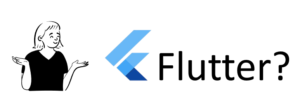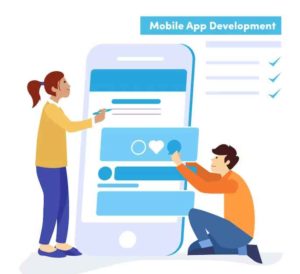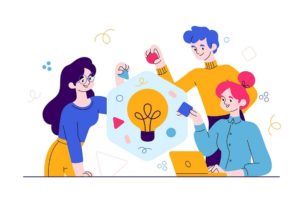React JS Training Course
- 24k Enrolled Learners
- Weekend/Weekday
- Live Class
Flutter is currently a popular topic in the industry, and many companies are seeking Flutter developers. If you’re interested in learning how to develop Flutter apps, then this “How to become a flutter developer” blog is for you. The roadmap in this blog will help you to know where to start and become a Flutter developer. Let’s begin!
Before jumping into the road map 1st let’s understand flutter a bit

Flutter was developed by Google and released in 2017. It quickly gained popularity among developers due to its ease of use, rapid development cycle, and ability to create visually appealing and highly interactive user interfaces.
Flutter uses Dart as its programming language, which is a type-safe and object-oriented language developed by Google. Dart is easy to learn and can be used to build web applications, server-side applications, and desktop applications in addition to mobile applications. One of the key benefits of using Dart with Flutter is the “hot reload” feature, which allows developers to make changes to the code and see the changes in the app immediately without having to rebuild the entire app.
Flutter’s widget-based architecture allows developers to create custom user interfaces quickly and easily, with a wide range of widgets available for building different types of UI components. The framework also includes many pre-built widgets, such as buttons, text fields, sliders, and more, which makes it easy for developers to create high-quality user interfaces without needing to write custom code.

Flutter is a great choice for developers who want to build cross-platform mobile apps without having to write separate codebases for each platform. This not only saves development time but also makes it easier to maintain the code and keep it up-to-date with the latest features and security updates. Additionally, Flutter’s fast development cycle allows developers to quickly prototype and iterate on their apps, making it a great choice for startups and small businesses that need to move quickly to stay ahead of the competition.
There are several reasons why developers choose Flutter:

To become a Flutter developer, you need to have a strong foundation in Dart programming language, knowledge of Flutter framework, experience in mobile app development, and a willingness to learn and grow. By following this roadmap, you can develop the skills and knowledge needed to become a successful Flutter developer and build high-quality mobile apps that delight and inspire users.
Many people who aim to learn flutter will directly start with flutter which is a bad choice as a beginner
What I would suggest is that 1st you need to understand the basics of how flutter was built and what is the foundation of this particular framework
To understand flutter, it was built using dart language
Dart is the primary programming language used for building Flutter applications. You should start by learning the basics of Dart, including variables, functions, and classes. Dart is a relatively easy-to-learn language, and there are many resources available online to help you get started.
To learn Dart, you can start with the official Dart website, which provides a comprehensive overview of the language, including tutorials, documentation, and other resources. You can also find many Dart courses and tutorials on platforms like Udemy, Coursera, and YouTube.
After you’ve learned the basics of Dart, you can start exploring Flutter. Flutter is a rich framework that provides many features and tools for building mobile applications. You can download and install the Flutter SDK, which includes everything you need to build Flutter applications.
To get started with Flutter, you can use the Flutter command-line tool to create new projects, run your app, and perform other tasks. You can also use Android Studio or Visual Studio Code, which are integrated development environments (IDEs) that provide additional tools and features for Flutter development.
To become proficient in a new language, it’s essential to have the drive to learn consistently. Starting out with UI development can provide a sense of gratification when the initial screen of your application appears as intended, which can be a source of inspiration. While working with UI development in Flutter, developers may encounter several problems and bugs. However, there are ways to proceed with UI development, such as reproducing a UI design from Dribbble or developing duplicate applications, such as TikTok or Whatsapp clones.
After you gain confidence in UI development, it’s recommended to begin learning about API calls, which are essential for creating any type of application. You can use various packages such as http, dio, and chopper to make API calls, with http being the most basic package and the others serving as wrappers with additional functionalities. It’s advisable to start with http before moving on to other packages. Once you integrate an API and make an API call, you will need to parse the API response into a model class. When working with APIs, the response typically comes in JSON format, so you will need to parse JSON in Flutter.
To create data storage solutions for modern applications, it is essential for developers to learn about database integration. Flutter offers various database integration options such as Firebase and Supabase for cloud-based storage and SQFLite, Hive, and Moor for local storage. Database integration is important for creating reliable and efficient apps that can handle a wide range of user needs, and as developers gain experience, they can make informed decisions about which databases to use based on their app’s requirements.
Flutter’s State Management is a crucial concept to understand, especially as your app grows larger and more complex. Managing the state of screens and the application can become challenging, particularly when you need to pass data from one page to another. While it’s simple to pass data during navigation from one page to another, it can be challenging to pass data from Page 1 to Page 5. This is where state management becomes useful. There are various state management techniques and packages available, so it’s not necessary to feel overwhelmed. Provider is a good starting point since it is a fundamental state management package.
Having a well-maintained project structure is crucial since it aids new developers in quickly reviewing code, facilitates bug tracing, and enables the addition or removal of functionality without disrupting the current functionality. Several predefined architectures, such as MVVM, MVC, and TDD, are available and have been created through extensive research. However, using them is not obligatory, and you can design your architecture that suits your team’s requirements. Always keep in mind the following factors when creating your architecture: simplicity, scalability, minimal inter-dependency between functionalities, and code reusability. If your architecture satisfies these criteria, it’s good to proceed with it.

To become a Flutter developer, you need a combination of technical and soft skills. Here are some of the key skills required to become a Flutter developer:
By following this roadmap, you can develop the skills and knowledge needed to become a successful Flutter developer. Remember, becoming a Flutter developer takes time, dedication, and hard work and also requires a combination of technical skills, soft skills, and a willingness to learn and grow. But with the right mindset and resources, you can build a rewarding career in mobile app development and create apps that delight and inspire users.
A Flutter Course will help you become an expert in developing cross-platform mobile apps that look great and perform even better.
Becoming a Flutter Developer requires a good amount of effort and dedication. But is it worth all the effort? Yes, it definitely is. It is the most valued designation and once you practice Flutter App Development, you’ll become a master of Mobile Applications. Thinking about your career starting soon? Let’s begin with the Flutter App Development program today.
 Thank you for registering Join Edureka Meetup community for 100+ Free Webinars each month JOIN MEETUP GROUP
Thank you for registering Join Edureka Meetup community for 100+ Free Webinars each month JOIN MEETUP GROUPedureka.co